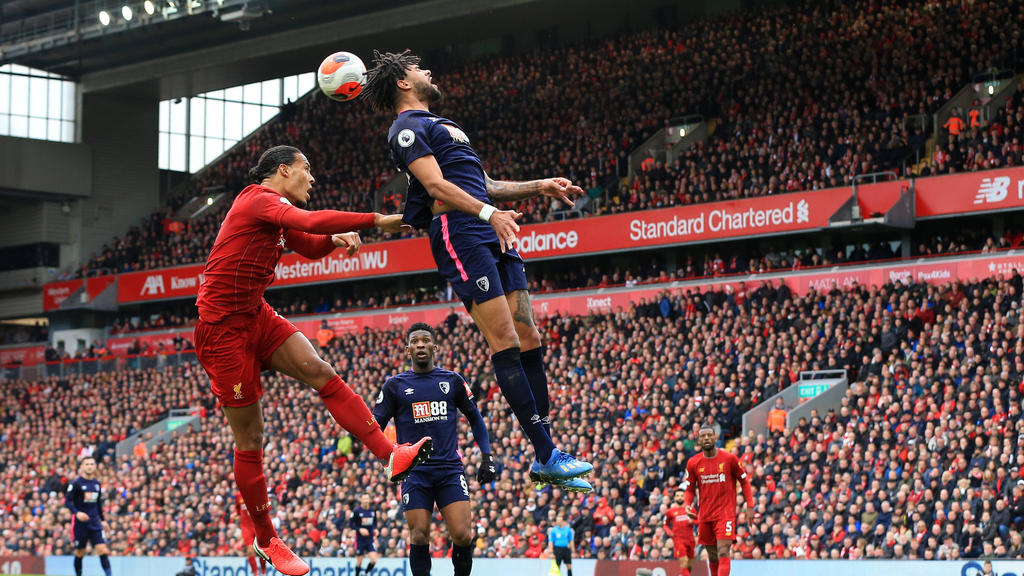
David Blunsden via www.imago-images.de
The Premier League is adamant that it can overcome huge logistical challenges to get players back on the pitch during the coronavirus crisis but has long since accepted there will be no fans in the stadiums.
English Football Association chairman Greg Clarke became the latest senior figure to admit this week that social-distancing guidelines make it impossible for supporters to congregate in stadiums "any time soon".
The drive behind the Premier League's "Project Restart" is the attempt to avoid having to pay back millions in TV revenue. Clubs could reportedly miss out on £762 million ($946 million) for failing to complete this season alone.
According to UEFA's latest European Club Footballing Landscape report, just 13 percent of the Premier League's revenue comes from gate receipts.
England's top tier therefore has the luxury many other leagues cannot afford of trying to ride out the economic storm without paying fans coming to watch in the stadium.
"We might not like it, it might not be the perfect solution, but it is the only solution that we've got to move forward," David Webber, a senior lecturer in football studies at Solent University, told AFP.
However, the billions in television revenues the Premier League has been able to tap into is not only thanks to the quality of the players on the field but the atmosphere provided by thousands of passionate fans.
"The whole economic model only works when the grounds are pretty full," said Richard Scudamore, who oversaw the Premier League's growth into a vast commercial giant from 1999 to 2018.
"No actor likes playing in front of an empty hall," he told the Telegraph.
The last time a ball was kicked in the Premier League was on March 9 and it will not return until June at the earliest, with Liverpool's title coronation on hold for now.
After such a long and unexpected lay-off, league bosses are hoping there will be an insatiable demand for their product.
Allowing fans to buy "virtual season tickets" to watch every match live has even been mooted as an idea to help mitigate the loss of matchday income.
But the University of Brighton's Mark Doidge agrees with Scudamore that the essence of what makes the Premier League special might be lost.
"Short-term there might be people who want to watch games on television," said Doidge, a senior research fellow at the School of Sport and Service Management.
"But I think the novelty will wear off very quickly when you realise that actually a large part of what drives the game is not just the people on the pitch, but the people in the stands."
Doidge said players and fans feed off the collective, emotional energy in English stadiums.
"That collective atmosphere is part and parcel of what the game is," he said. "If they haven't got that to feed off, is the quality of football going to be there and ultimately will the televisual experience be there?"
Premier League clubs are reportedly already making contingency plans to play out the whole of the 2020/21 season behind closed doors.
Yet, it remains to be seen if there will be any demand for such a deluge of sanitised matches from armchair supporters, TV companies and even players.
"It's a strange situation not having the fans there. That's what makes football, that's what makes the atmosphere," Tottenham and England midfielder Harry Winks told the BBC.
"It's not something that I like and I know a lot of players feel the same way. It's not something that anybody really wants to do."
Nenhum comentário:
Postar um comentário